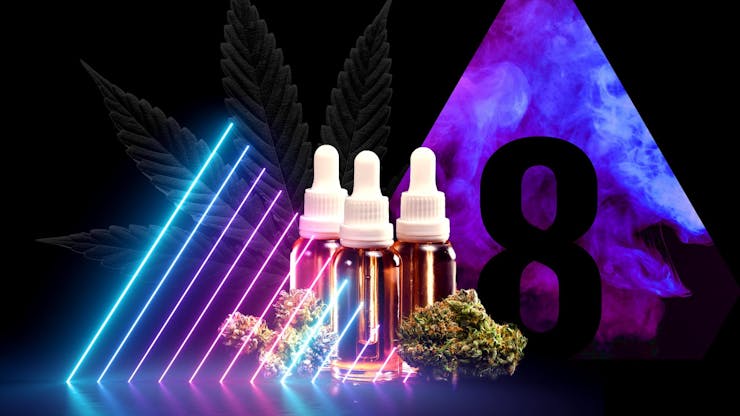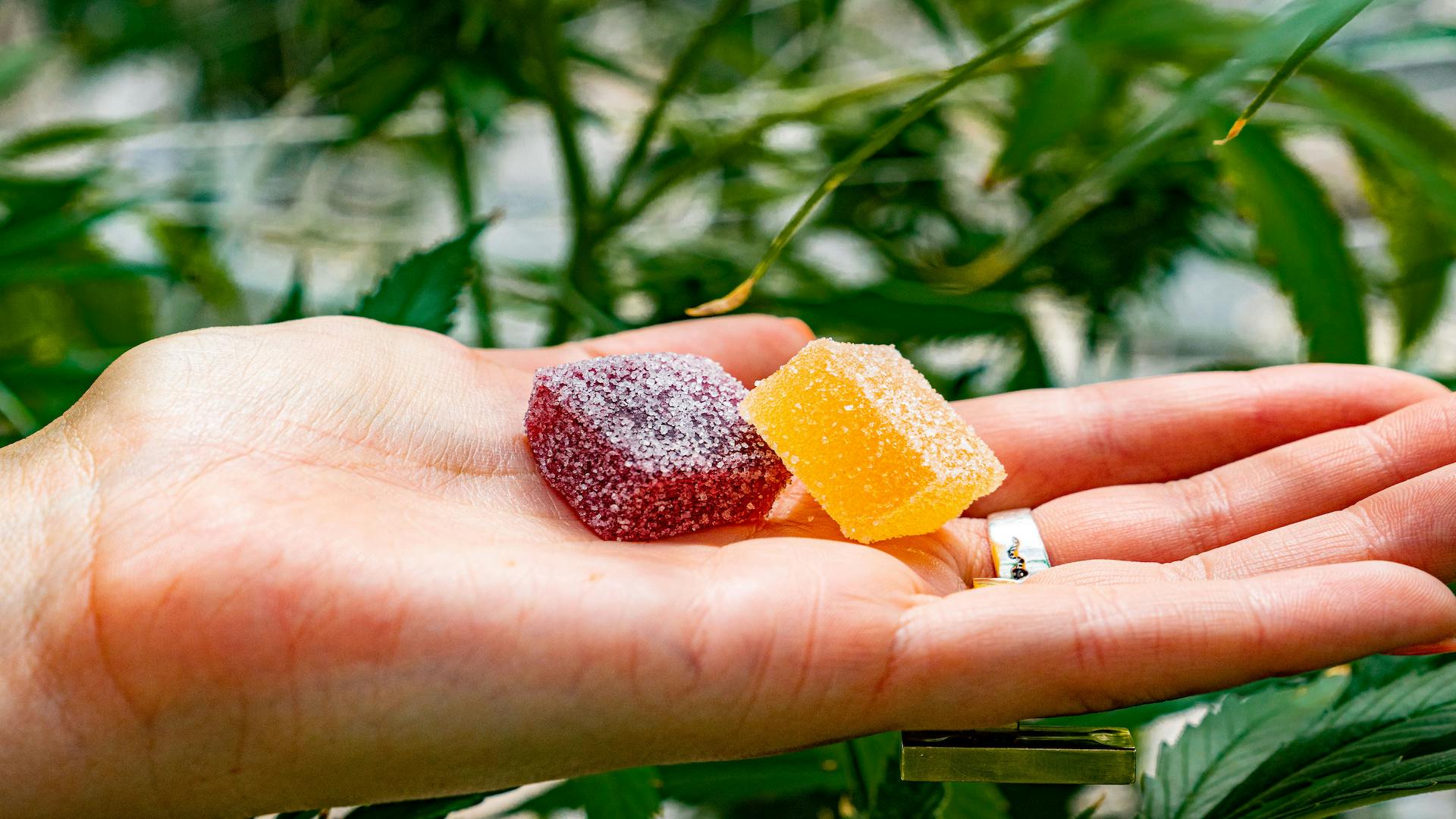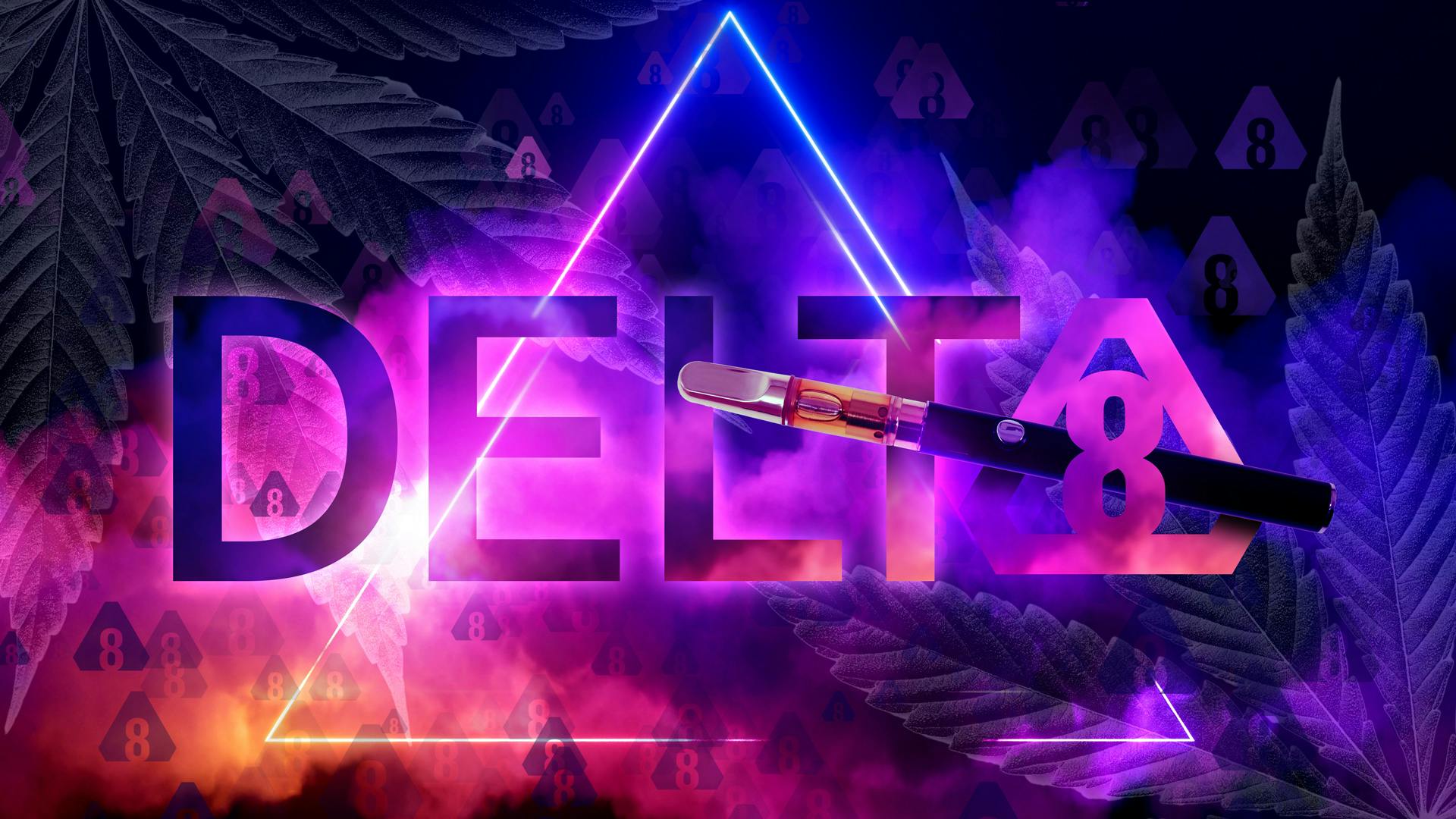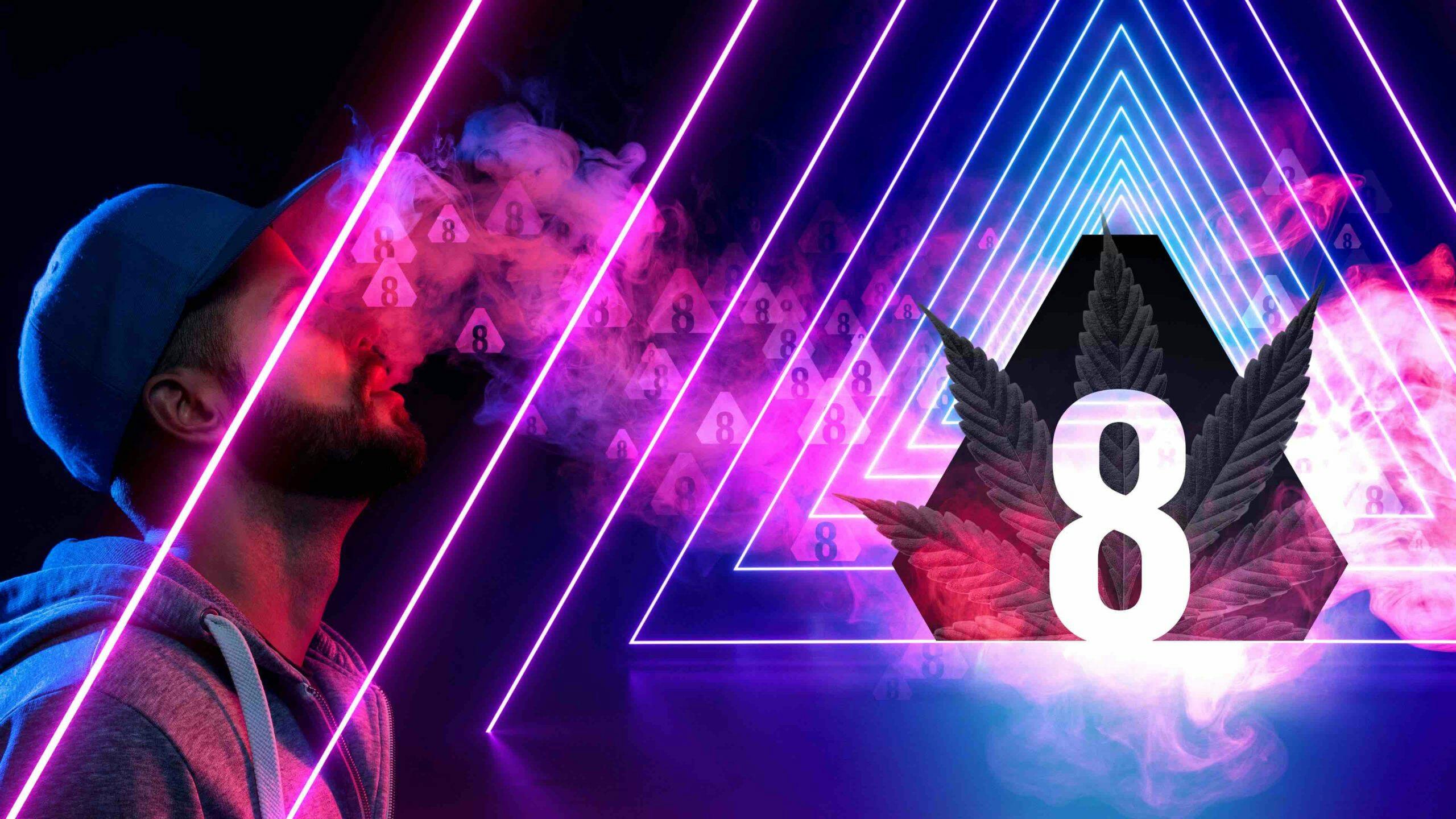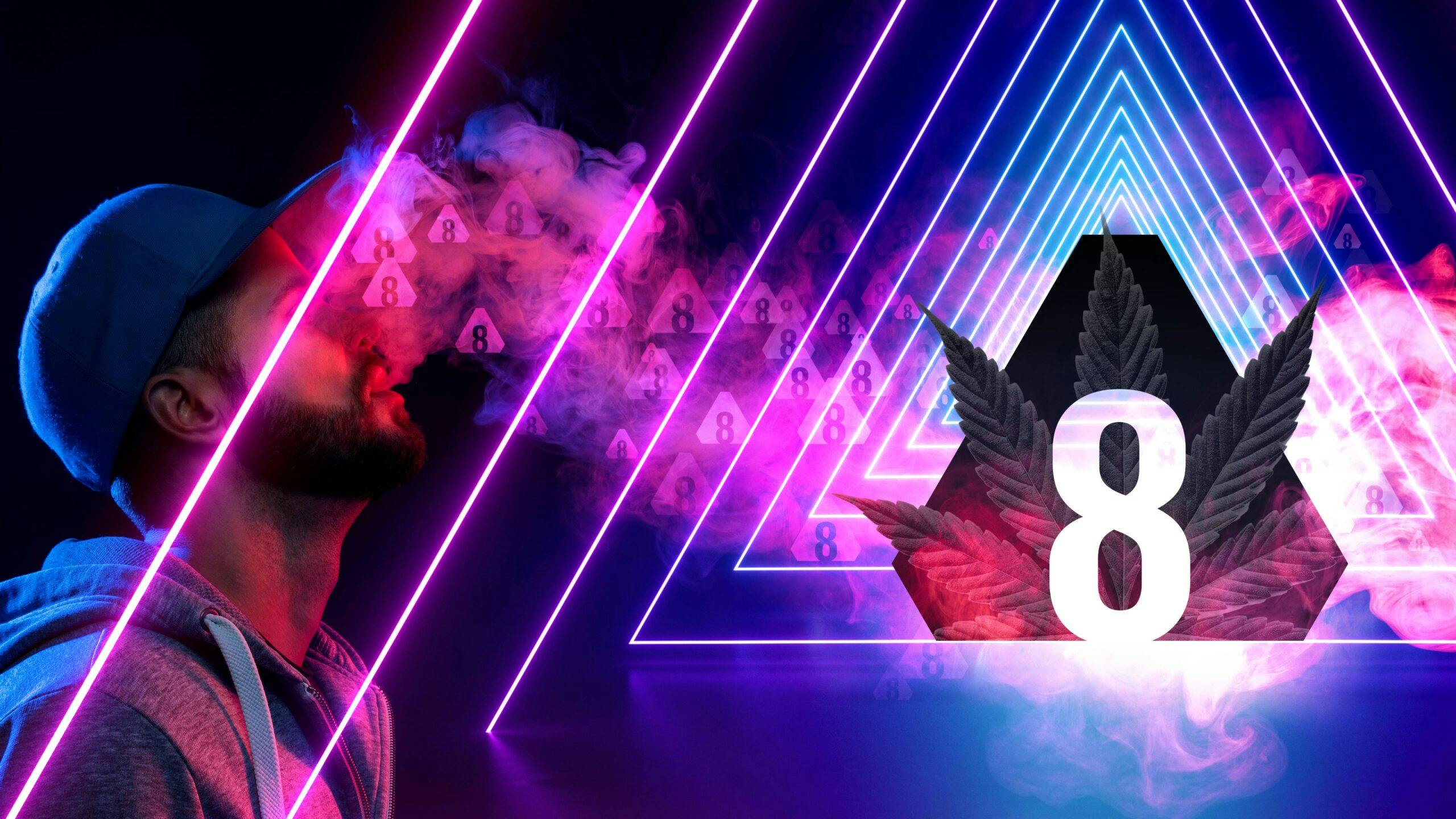Smoke shops, CBD outlets, and traditional head shops across the country are selling a wide variety of products containing delta-8 (Δ8-THC), the hemp derivative considered federally legal under the terms of the 2018 farm bill.
Unlike CBD, the intended target of the 2018 farm bill, delta-8 THC is intoxicating. In other words, it gets you high.
Delta-8 is a naturally occurring cannabinoid commonly derived from hemp-sourced CBD. Its distillate is typically infused into edibles or sprayed onto hemp flower, which allows it to be smoked like regular cannabis.
Within the past year, delta-8 products have flooded the market, often promising a ‘lighter’ or more ‘functional’ high than whole, natural cannabis. Many industry insiders and consumers have described it as a more alert high, one that’s rid of the anxiety and paranoia that can accompany more energizing weed strains.
It has exploded in popularity in hardline prohibition states where it’s the only option for a legal high. But delta-8 THC products have also been filling the shelves of unlicensed stores in places where state-licensed cannabis is legal and readily available. All around Southern California, smoke shops (which are not licensed to sell legal cannabis) have glass cases jammed with everything delta-8.
Why should I care about quality?
There’s a lot of marketing and enthusiasm around delta-8 but—outside of licensed cannabis stores—no regulations to ensure product potency and purity. There are no rules to stop bad actors.
We asked cannabis industry experts, scientists, retailers, and manufacturers for advice on what to look out for and how to find the purest, highest quality delta-8 products. Here are some of their top suggestions.
Rule #1: Buy at licensed cannabis stores
If you live in a legal state, state-licensed cannabis stores will carry only legitimate, quality-tested delta-8 products. Those are the gold standard.
In California, Washington, and other legal adult-use states, delta-8 THC products sold in licensed cannabis stores are subject to the manufacturing requirements and lab testing that all licensed cannabis products must pass.
“Cannabis products containing delta-8 THC wouldn’t be treated any differently from cannabis products containing delta-9 THC, CBD or other cannabinoids,” explained Matt Conens, a spokesperson for the California Department of Public Health. “All cannabis products must meet California cannabis manufacturing and testing requirements.”
It’s important to note that state regulators only control products within the state-licensed cannabis system. They don’t have the authority to stop the sale of random delta-8 THC products in non-licensed stores like head shops, gas stations, and smoke shops. If you do see a licensed cannabis brand in an unlicensed store, it’s probably a fake knockoff because the real brand could lose its cannabis license for breaking the rules.
Rule #2: Beware the head shops
Traditional head shops are great for finding new glass pieces, rolling papers, and other accessories.
But when it comes to delta-8 THC, pretty much anything can end up inside these stores, since they face none of the regulatory requirements that legal cannabis dispensaries must abide. There are no rules around what a head shop or gas station can sell when it comes to delta-8 products.
As a consumer, you have zero assurance that what’s advertised on the package is what’s contained inside—or that it doesn’t contain pesticides, toxic diluents, or other mystery additives.
You may occasionally come across legit products in some of these stores since delta-8 has pretty much the same federal legal standing as CBD (which is available even in grocery stores). But the fact remains that it can be hard to tell — especially given factors like deceptive packaging and forged lab reports.
Rule #3: Steer clear of fake brands
Some shops operating outside of state-licensed cannabis systems are selling packages of vape carts and gummies that look eerily similar to the illicit-market vape carts that sickened thousands of Americans with the vape lung disease EVALI in 2019.
Pro tip: Don’t fall for fake brands and copycat packaging. We’re already seeing sketchy stores selling delta-8 products with logos that mimic well-established legitimate brands like Cookies. If it’s really a Cookies product, you won’t find it anywhere but a state-licensed cannabis store.
Rule #4: Check the QR code and COA
Never buy anything without a QR code or anything not clearly labeled with a brand. You need to be able to trace the product back to its branded source, and the best way to do that is to scan the QR code while you’re inside the store.
This might feel awkward, but it’s basically your only way of knowing if the product is legit before buying it.
Products manufactured by fake brands, or by illegitimate copycats, will lack a QR code on the packaging—or will have a QR code that lead nowhere. The QR code on a legitimate brand product will lead to information about the product’s lab test and batch potency.
It is possible the QR code could lead to a false lab report. Multiple people in the industry told us they’ve seen forged testing results. The code will usually link to a documents called a certificate of analysis, or COA, which breaks down testing results for products. They’re typically done by a third-party lab and will show the purity of the product — cannabinoid levels like how much is delta-8 THC there is, or how much federally illegal delta-9. They may also show testing results for contaminants such as pesticides, mold and microbials and whether they are within legal limits.
Canna Redux in Denver has this helpful list of tips for verifying COAs.
Rule #5: Buy directly from the maker online
If you’re not able to purchase from a state-licensed cannabis store, buying online can be a simple way to know you’re getting a real delta-8 product.
When you buy online, you can purchase from a respected retailer or directly from the product manufacturer. A legit brand will usually have a lab test tab on its website, where you can view lab reports on their delta-8 products or request to see them. That’s what’s available on the websites of top-quality brands like 3Chi, Delta Effex, Pure Craft CBD, and Diamond CBD.
Rule #6: Avoid sites that use cash app payments
How do you know you’re ordering from a legit source online? One clue is their payment system.
Avoid places that ask you to purchase via Zelle, Cash App or Venmo. Since CBD is federally legal—and delta-8 is derived from CBD—online retailers have the ability to work with legitimate payment processors, unlike most dispensaries in the licensed cannabis industry.
Most leading CBD brands with delta-8 offerings in their product line take major credit cards like Discover, Visa, Mastercard, and American Express.
Pure Craft CEO Jason Navarrete said major payment processors will only work with CBD brands like his after running their products’ certificates of analysis (COAs) through a system that checks for fraud. That detects if a lab report has been edited or forged.
Many payment processors take this extra step because they’ve been reluctant to work with anything related to delta-8. “A lot of them still don’t want to play with it,” Navarrete said. “It was very, very tough for me to get processing on this product, and that’s because the banks are responsible on the backend, too, and they want to make sure that they’re safe.”
When visiting an online seller’s website, scroll to the bottom of the page. That’s typically where you can find out whether they take major credit cards. You can also just fill a shopping basket and start the checkout process to see if they allow you to use a major credit card.
